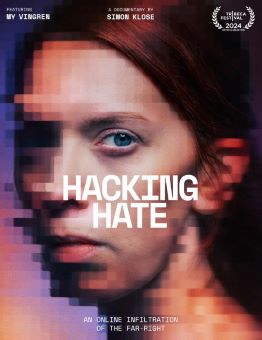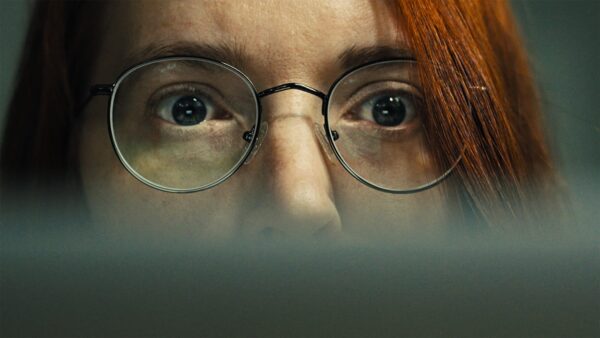In Hacking Hate, the latest documentary from director Simon Klose premiering at this year’s Tribeca Film Festival, a well-respected and awarded Swedish journalist examines the connection between far right extremism and social media. The film’s subject, My Vingren, has spent most of her career covering the workings of white supremacists and their ideologies, even in the face of ongoing harassment and credible death threats. After pitching a story to Expo, a popular anti-racist magazine in Sweden, Vingren begins exploring how white supremacists use social media to radicalize lonely, young, white men in Sweden to their perverse perspectives. By creating fake, male, online identities, My begins searching the internet and connects with various racist influencers. By following a ridiculous Youtuber called “The Golden One” – who dispenses blonde-haired, muscle-bound, workout-tips combined with racist/misogynist rantings on his vaguely homoerotic channel – she is soon invited to join other groups. One in particular proves to be an underground, Neo-Nazi organization that shares all kinds of horrific content online – including videos of racially motivated shootings and murders. Vingren is eventually led to an online persona known as “Vincent”, whom she doggedly tracks across Scandinavia, documenting his recruitment efforts. She eventually discovers that the mysterious Vincent is a world player with ties to Russia, the Wagner Group and the United States.
My Vingren is award-winning Swedish journalist in Hacking Hate
Initially motivated to explore how extremists use social media, Vingren realizes that, perhaps, it’s the other way around. With lax rules and little oversight, social media companies give tacit approval by allowing use of their platforms for racist activities. From a bottom line perspective, hate speech is profitable because it has a large following which increases revenue. That online hate often turns to real world violence, as proven through the January 6th coup attempt and the 2023 grocery store shooting in Buffalo, NY, is seemingly a corporate after-thought. The film makes this point through conversations with Twitter and Twitch whistle-blower Anika Collier-Navaroli, who tried to warn both of her former employers of these two upcoming tragedies before they happened, based solely on her observation of activity on their respective platforms. With mostly talking heads and recurring images of Vingren illuminated by computer graphics projected onto her apartment wall, Klose still creates a visually intriguing story. The film gets a little lost in the minutiae of the Victor storyline yet the overall message is clear. Regardless of public relations messaging, social media companies are consciously helping to foster the climate of hate and violence that saturates much of the world and something must be done. Soon.
Anika Collier Navaroli, the instrumental whistleblower at X
Hacking Hate
Nonami
Best Documentary Feature Winner
reviewed June 9, 2024 at Tribeca Film Festival (Documentary Competition)
Sweden, Denmark, Norway | 86 minutes | in English, Norwegian Swedish
Cast: My Vingren, Anna Fröjd, Anika Collier-Navaroli, Imran Ahmed, Sara Övreby, Geir Loe Winsrygg, Andrei Soshnikov, Roberto Lovato
Cinematographers: Iván Blanco, Tony Johansson
Editor: Nicolas Nørgaard Staffolani
Composer: Kate Havnevik


